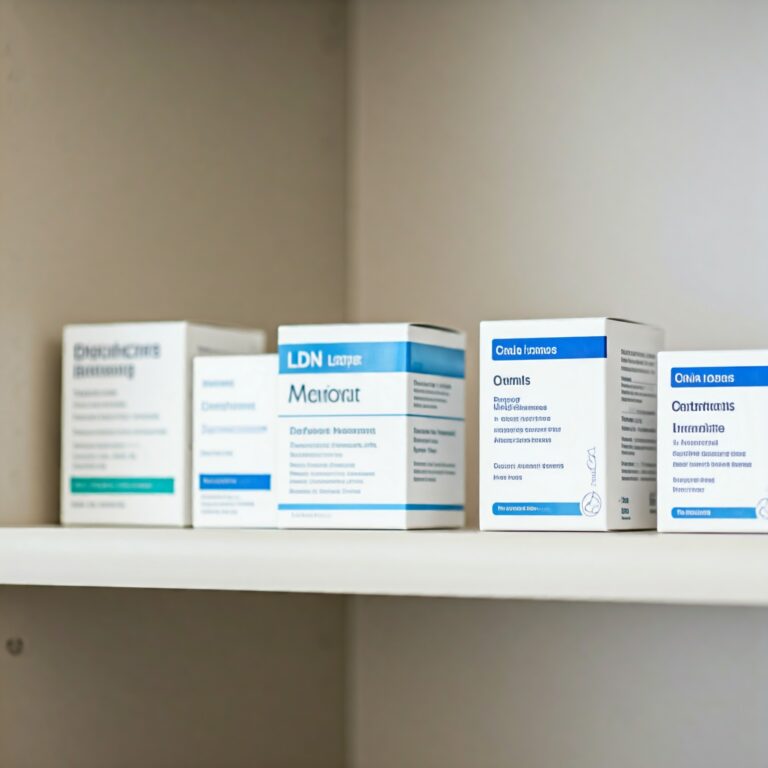Crohn’s disease management is easier to stick with when it feels human, not heroic. If flare-ups keep gatecrashing your plans, it is tempting to do nothing new, then hope for the best. A calmer, smarter approach is to build a simple plan that covers treatment options, daily habits, and support, so you can feel more in control on good days and better prepared on tough ones.
What Crohn’s disease management involves
Think of management as a personalised toolkit, not a single fix. It combines the right medicines, practical routines, and check-ins with your healthcare team. Recent research shows that over 1 in 123 people in the UK live with Crohn’s or Colitis—almost double previous estimates1. Effective Crohn’s Disease management requires a combination of treatments tailored to reduce inflammation and alleviate symptoms. While there is no cure, the need for effective treatment options has grown due to rising incidence rates. Studies reveal that the incidence of Crohn’s Disease in the UK is about 83 per million people annually, with notable increases since the mid-20th century2.
Living with Crohn’s day to day
Life with Crohn’s is a series of adjustments. On some days, symptoms whisper. On others, they shout. Building small, reliable habits reduces decision fatigue and helps with managing Crohn’s symptoms. Keep a simple record of what you eat, how you feel, and any triggers you notice. Share patterns with your clinician or dietitian, then decide together what to try next.
Crohn’s disease treatment options
Treatment options for Crohn’s disease depend on your symptoms, test results, and health goals. Your team may use one or more of the following:
- Steroids for short-term symptom control during flare-ups.
- Immunosuppressants, for example azathioprine or methotrexate.
- Biologics, for example infliximab, adalimumab, ustekinumab, or vedolizumab.
- Targeted small molecules in selected cases.
Biologics and immunosuppressants work on the immune response that drives inflammation, which can help you reach and maintain remission. This relatively new treatment approach has provided significant relief for patients with moderate to severe symptoms3.
A short Crohn’s disease medication guide
Ask how each medicine helps, how quickly it works, and what to watch for. Bring a list of current medicines and allergies to appointments. If something is not working, say so. There is usually another option.
Crohn’s disease surgery considerations
In some situations, surgery can improve quality of life. It may be used for complications such as strictures causing blockage, fistulas, or an abscess. Procedures include bowel resection and, less commonly, colectomy. Surgery is not a cure, so it usually sits alongside ongoing care.

The Role of Early Diagnosis in Effective Treatment
Early diagnosis of Crohn’s disease matters because treatment tends to work better before complications build up. If you have lasting symptoms such as abdominal pain, diarrhoea, weight loss, or fatigue, book an appointment. Testing early can speed up access to the right care and reduce the risk of ongoing inflammation.
Lifestyle changes for Crohn’s disease
Small, consistent actions add up. Pick two or three that feel doable this week.
- Food and drink. Create a Crohn’s disease diet plan with a registered dietitian. Some people find an anti-inflammatory diet pattern helpful between flares. During flare-ups, your team may suggest gentler, lower fibre choices for a while.
- Track and tailor. Keep a food and symptom diary to spot triggers. Work with a dietitian to adjust portion size, meal timing, and hydration.
- Movement. Walking, swimming, or yoga can support energy and mood. Start small, be kind to your body.
- Stress management and mindfulness. Short, regular practices, for example breathing exercises, can lower stress reactivity.
- Sleep and rest. Prioritise a steady sleep routine. Rest is not laziness, it is maintenance.
Managing Crohn’s flare-ups
Flare planning reduces panic. Save a note on your phone with your clinician’s advice, current medicines, red flags to watch for, and what helps you at home. Pack a small kit for days out, think spare clothes, wipes, and any medicines. Tell a trusted colleague or friend what you might need.
Crohn’s disease remission strategies
Remission is a shared project. Personalised Crohn’s care often includes sticking with maintenance medicines, attending reviews, keeping vaccines up to date, and choosing daily habits you can actually keep. Aim for progress, not perfection.
Topics to discuss with your team
- Early diagnosis of Crohn’s disease and which tests are planned
- Which treatment options for Crohn’s disease suit your goals
- How to use managing Crohn’s symptoms day to day
- When to change your Crohn’s disease medication guide plan
- What lifestyle changes for Crohn’s disease are worth trying
- How surgery could affect quality of life
FAQs on Crohn’s disease management
A mix of medicines, daily habits, and follow-up care. Your plan should be personalised and reviewed regularly.
Sometimes. Track triggers and work with a dietitian to shape a diet plan that suits you.
Options include steroids, immunosuppressants, and biologics. Your team will match treatment to your symptoms and goals.
Often for complications like strictures, fistulas, or abscesses. It aims to improve symptoms and quality of life.
It can. Mindfulness, counselling, and light activity may help some people.
Bring a symptom diary, medication list, and key questions. Note what helps during flares.
Living with Crohn’s is hard work at times, yet small changes, steady support, and the right treatments can help you feel more like yourself. Keep asking questions. Celebrate tiny wins. And remember that flexible plans beat perfect ones.
Medical disclaimer. Remember, this blog post is intended for informational purposes only and should not be construed as medical advice. Always consult with your doctor to discuss your individual situation and determine the best course of treatment for you. Do not start or stop medications without speaking to a doctor. Do not change your diet without speaking to your doctor or a healthcare professional.






